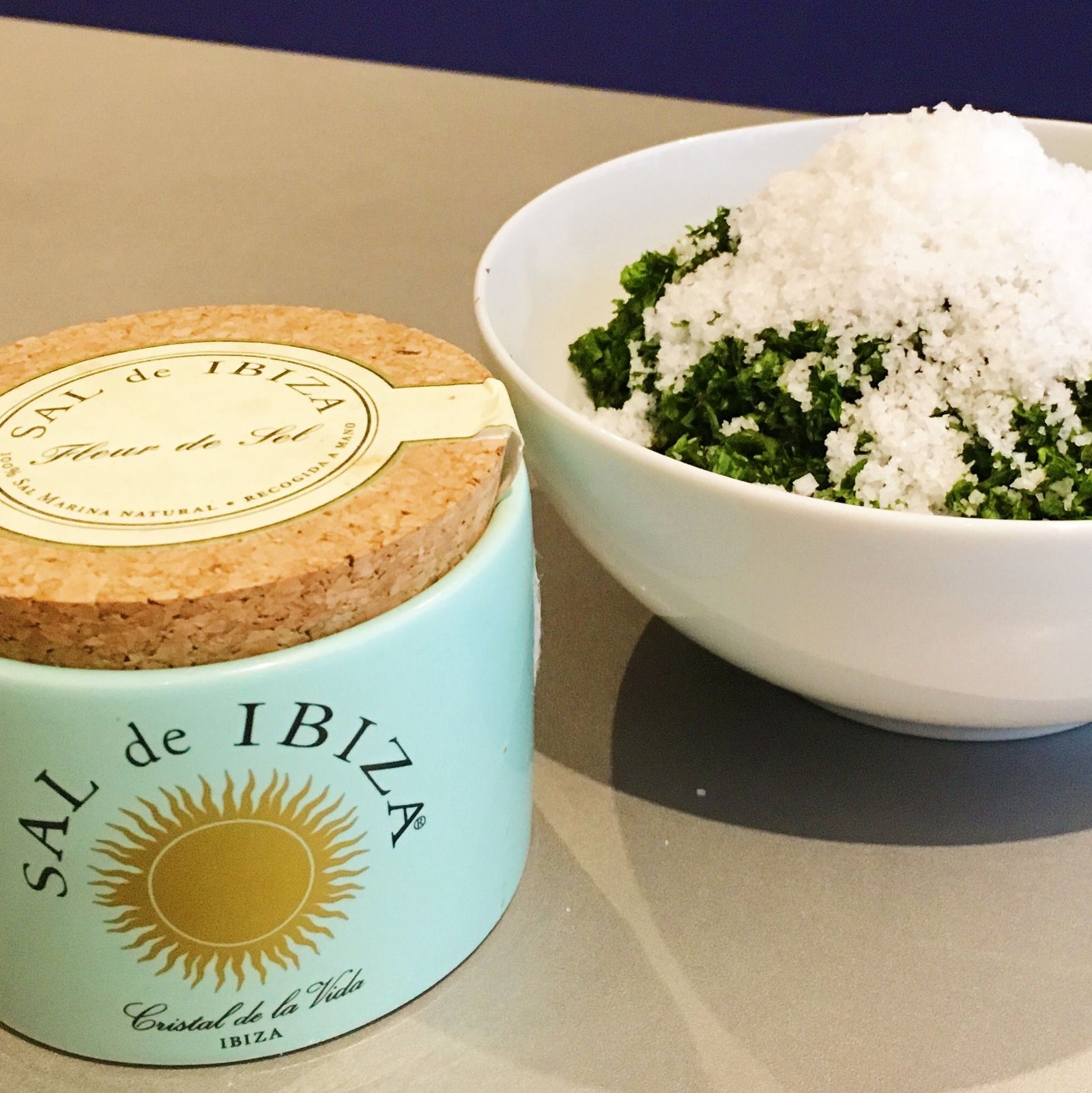Herbs are healthy
Fresh kitchen herbs are very important, I think! They taste good, make your food more interesting and often also have a digestive effect and high-quality ingredients. Did you know, for example, that 2 tablespoons of parsley cover most of your daily vitamin C requirement?
As they are often not very cheap in the stores, but are very easy and low-maintenance to grow: why don't you just get the most important few in your garden, on your balcony or on your windowsill?
Three kitchen herbs that should not be missing in your cooking
Parsley
 There is flat-leaf or curly-leaf parsley, the flat-leaf is more aromatic. I have also read that "parsley leaves should actually be counted among the over-the-counter multivitamin supplements". They contain a lot of iron, magnesium, calcium, beta-carotene, vitamin B1, B2, folic acid, vitamin C and E.
There is flat-leaf or curly-leaf parsley, the flat-leaf is more aromatic. I have also read that "parsley leaves should actually be counted among the over-the-counter multivitamin supplements". They contain a lot of iron, magnesium, calcium, beta-carotene, vitamin B1, B2, folic acid, vitamin C and E.
You can use the juice of parsley to rub on mosquito bites, and the essential oils contained in parsley also have an odor-binding effect. This means that anyone who suffers from bad breath or body odor should eat fresh parsley regularly.
It also has many other health-promoting properties:
It is said to protect against stress and colds (probably due to its high vitamin C content) and the high chlorophyll content in parsley helps to cleanse our blood and support the detoxification function of the liver and kidneys.
Parsley is also used to treat menopausal and menstrual problems. However, it should not be consumed in large quantities by pregnant women. It also has a positive effect on digestion, as it reduces heartburn and a feeling of fullness. And if I now tell you that it even has a positive effect on the heart, cholesterol levels and hormone balance, as well as having an anti-inflammatory effect, then you should be really keen to get hold of this herb straight away if you don't already have it in your garden. It is probably one of the most popular herbs in our gardens. And rightly so, it seems.
Lovage (also known as Maggi herb)
 I've been using lovage regularly since I've had it in the garden! I particularly like it in salads, but it also makes a great addition to soups.
I've been using lovage regularly since I've had it in the garden! I particularly like it in salads, but it also makes a great addition to soups.
Lovage has a diuretic and draining effect.
It can relieve cramps, combat flatulence and stimulate the appetite.
Digestion also benefits, as lovage reduces belching and heartburn, but also >constipation and a feeling of fullness! Lovage also has a metabolism-stimulating effect, which is desirable if you want to lose weight, for example.
Oregano
 When you hear oregano, you think of pizza. Don't you? But that would be too short-sighted.
When you hear oregano, you think of pizza. Don't you? But that would be too short-sighted.
Oregano also supports your digestion. It has an anti-bacterial effect (i.e. it is a plant-based antibiotic) and fights fungi of all kinds. So it is definitely useful if you suffer from candida or mold infestation in your intestines, for example.
It is also often used to treat intestinal parasites. In Chinese medicine, it is probably also used for diarrhea, skin problems, vomiting and fever. Oregano also has a blood-thinning effect.
Recipe for homemade herbal salt
 I was inspired to make this mixture by a recipe in the book Küchenkräuter by Betty Bossi*, but I have modified it a little.
I was inspired to make this mixture by a recipe in the book Küchenkräuter by Betty Bossi*, but I have modified it a little.
Ingredients for a small screw-top jar:
50g parsley
25g lovage
10g oregano
tablespoons (approx. 20 grams) of high-quality salt
Preparation:
Wash the herbs and dry well (with a towel or kitchen paper). Then chop all the herbs with a large knife and mix well with the 2 tablespoons of sea salt.
Fill tightly into a storage jar or clean jam jar. Keeps in the fridge for about 2 months as the salt preserves the herbs.
You can use the salt for all sorts of things, I've used it for tabouleh or fish, for example, but it also tastes great in scrambled eggs.
Write to me in the comments to tell me what your favorite herbs are and what you use them for. I'm looking forward to it!
















